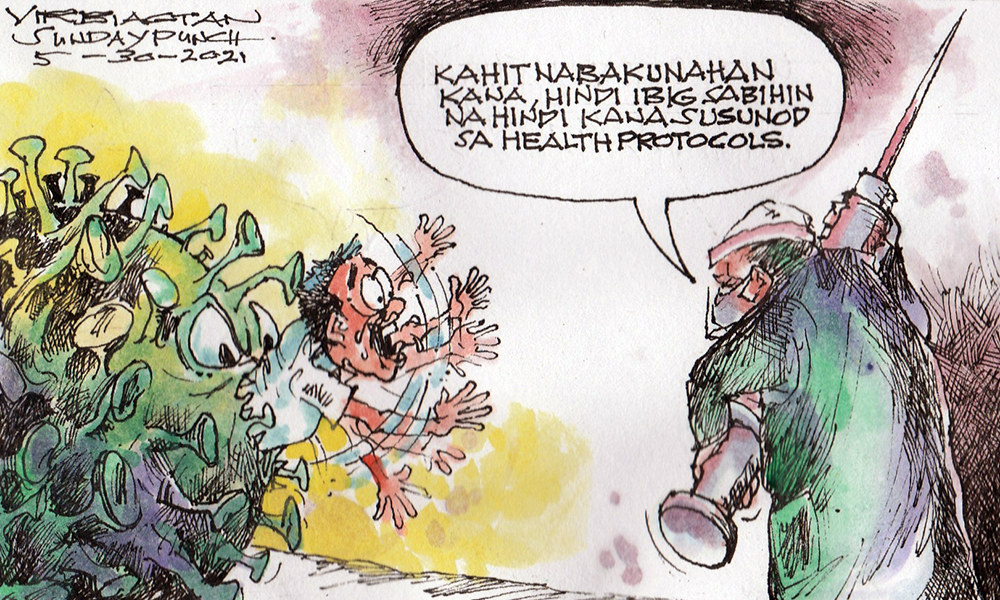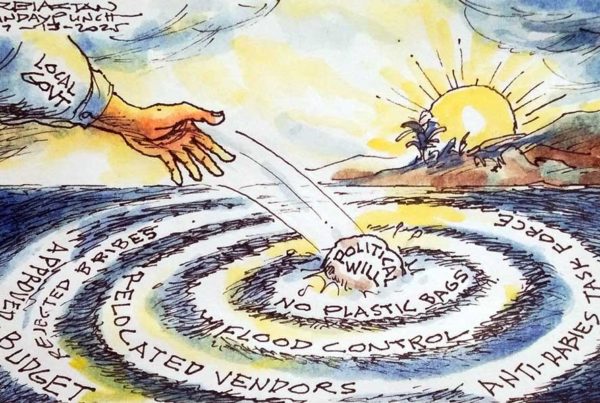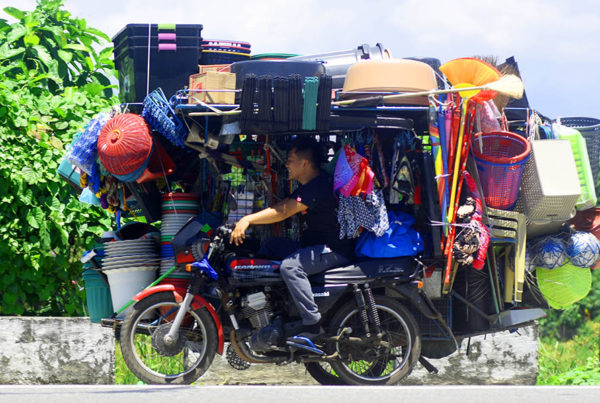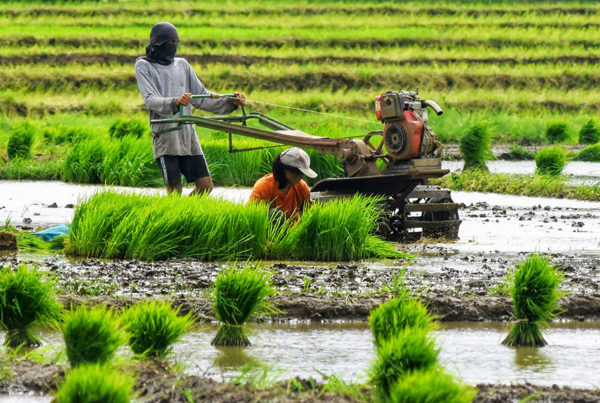
Vulnerability after vaccine
BBC News recently reported: “Covid-1: What went wrong in Singapore and Taiwan?”
Quoting from its report, “They’ve been hailed as success stories – places that have been virtually zero or single-digit Covid cases since the start of the year. But this month, Singapore and Taiwan have both seen aggressive rise in cases.”
Indeed, there are hard lessons to be learned. And that lesson is learned close to home with the reported Covid infection of Dagupan City Mayor Brian Lim who had completed the 2-dosage protocol.
In Taiwan, the report said “population started to become complacent – as did its government… hospitals stopped aggressively testing people for Covid… very little contact-tracing was done… government relaxed its quarantine requirements… people frequenting tea houses, singing, drinking.”
In Singapore, it overlooked the threat coming from incoming visitors from high-risk countries while being processed and attended to by airport workers. It was deemed “cracks in the wall.” Many of the workers were discovered to have been infected by a highly contagious variant from India.
At home, the case of Mr. Lim was evidently from failing to continue to observe health and distance protocols out of over-confidence that these two doses of vaccine have made him completely immune from the disease. As WHO has warned, the anti-Covid vaccines only offer an amount of security but not total immunity. Mr. Lim could have stopped wearing face a mask at the time in the belief that he is completely immune all because he already completed the required two doses. Wrong assumption.
Moral of these reports – a vaccine does not make one invulnerable. Wearing a face mask (and face shield in public) is still a must, even after receiving the jab whether once or twice.
Silent Olympics
NOW it’s Asahi Shimbun calling for the cancellation of the Tokyo Olympics. Japan’s biggest newspaper cited risks to public safety and medical strains from the COVID-19 pandemic should the Games be held from July 23 to August 8. In its latest editorial, Asahi Shimbun said: “We ask Prime Minister Yoshihide Suga to calmly and objectively assess the situation and decide on the cancellation of the event…We are far from a situation in which everybody can be confident they will be safe and secure.” The latest survey showed that almost 70 percent of residents of Tokyo and Osaka, Japan’s two biggest cities, opposed the holding of the pandemic-postponed Games set originally in July 2020. Should the event proceed, the participating 11,000 or so athletes from more than 205 countries will perform only in front of camera crews. But is the world ready for the first ever Silent Olympics? Unthinkable.
Share your Comments or Reactions
Powered by Facebook Comments









